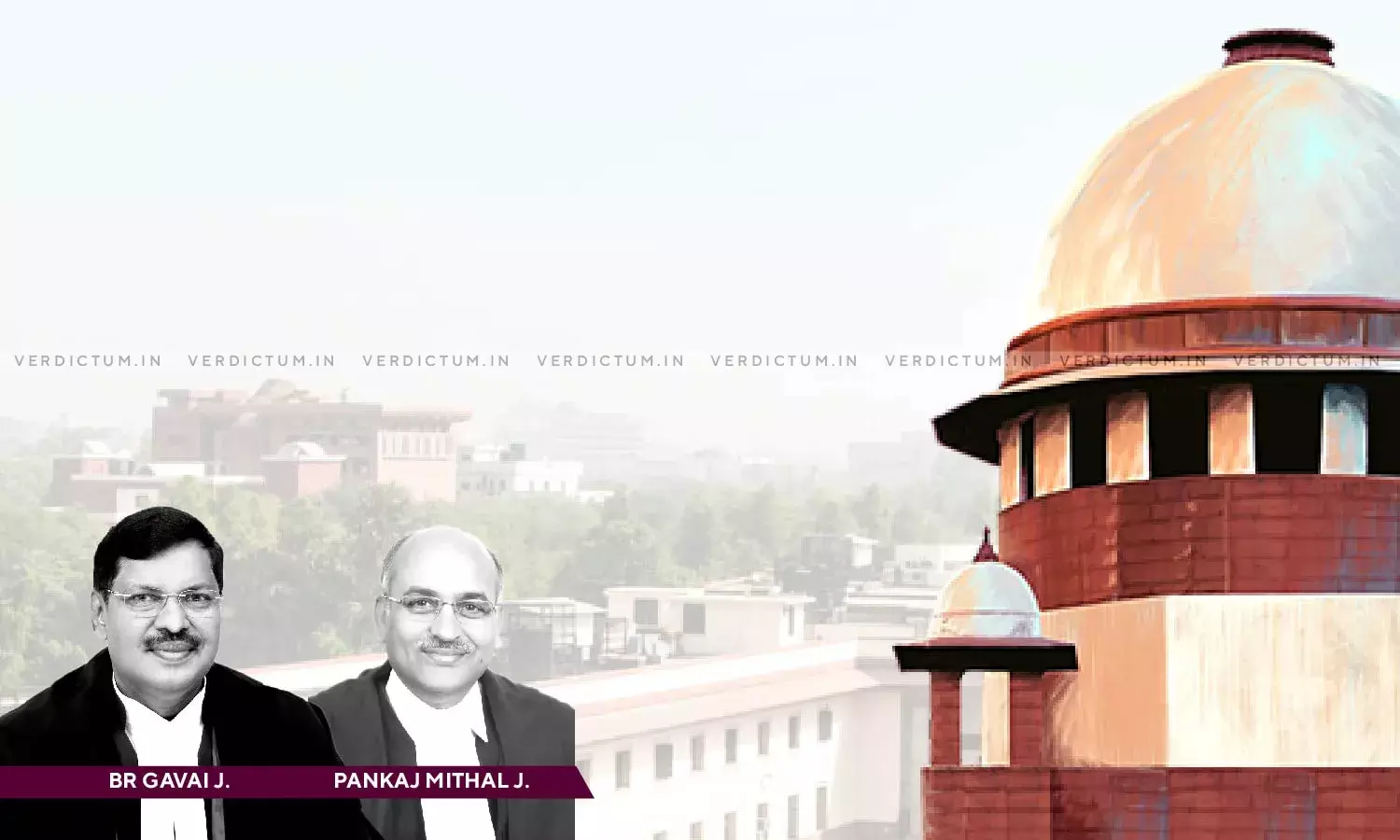Denying Promotion On Ground That Employees Don’t Possess Necessary Minimum Qualification Of Matriculation Isn’t Justified: SC

The Supreme Court has held that rejection of the claim for non-functional in situ promotion on the ground that the employees do not possess the necessary minimum qualification of matriculation as per the rules is not justified under the law.
The two-Judge Bench of Justice B.R. Gavai and Justice Pankaj Mithal asserted, “… the rejection of the claim for such non-functional in situ promotion on the ground that the employees do not possess the necessary minimum qualification of matriculation as per the rules is not justified and renders the order erroneous in law. The view so taken by the Division Bench of the High Court was affirmed by this Court in the above referred Civil Appeals holding that the High Court has correctly analysed the object of the in situ promotion and fixation of pay scales to Group C and D employees to avoid stagnation.”
The Bench said that both ACP and MACP Schemes are schemes devised which are with the object of ensuring that the employees who are unable to avail of adequate promotional opportunities, get some relief in the form of financial benefits.
Senior Advocate Navniti Prasad Singh appeared for the appellants while Advocates Saket Singh and Samir Ali Khan appeared for the State.
Brief Facts -
A batch of appeals was preferred by the appellants against the judgment passed by the Patna High Court whereby the Letter Patent Appeals (LPAs) of the respondents were allowed and the judgment of the learned Single allowing the writ petitions was set aside. The appellants were appointed as Accounts Clerks where the minimum qualification was intermediate and the cadre of Junior Accounts Clerk and Senior Accounts Clerk which existed prior to 1980 merged with effect from May 1, 1980, and a common cadre of Accounts Clerk came into existence.
In 1999, the demerger of the cadre took place and the Clerks came to be retained in their respective cadres without any promotional avenues. The appellants invoked the writ jurisdiction of the court seeking the benefit of Assured Career Progression (ACP) on completion of 12 years of service to avoid stagnation and the writ court extended the benefit of ACP to the appellants keeping in view the earlier decisions of the High Court.
The Supreme Court in view of the facts of the case observed, “Accordingly, the schemes provide for regular financial upgradation on completion of 12-24 years and 10-20-30 years of service without promotion. They are incentive schemes for the employees who complete a particular period of service but without getting promotion for lack of promotional avenues. The effect of the schemes must be judged keeping in view the object and the purport of the scheme.”
The Court said that the judgment of the Division Bench of the High Court cannot be sustained and that the appellants are extended the benefit of ACP, as directed by the writ court.
“… the appellants are entitled to financial upgradation under the ACP Scheme on completion of requisite regular service ignoring the higher qualification prescribed for the next higher post as grant of such benefit is not actually a promotion but only financial upgradation and if the higher qualification is insisted it would frustrate the purpose of the entire scheme”, noted the Court.
Accordingly, the Court allowed the appeals.
Cause Title- Amesh Kumar Singh & Ors. v. The State of Bihar & Ors.


